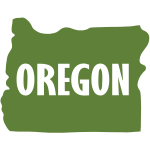
To learn more about our on-site mobile drug & alcohol testing services, or to discuss a custom solution for your business, give us a call at (503) 477-7748 or submit an inquiry.


Return-to-duty (RTD) drug testing is a critical process for ensuring workplace safety, compliance, and accountability following a violation of drug or alcohol policies. Governed by strict federal and state regulations, the RTD process enables employees to demonstrate their fitness to resume safety-sensitive duties.
In Portland, Oregon, employers and employees alike must navigate this complex process to meet legal requirements and maintain a drug-free workplace.
The RTD process involves several steps to verify that an employee can safely return to their job after a positive drug or alcohol test or a policy violation. The process is overseen by a Substance Abuse Professional (SAP). It aligns with federal regulations, such as 49 CFR regulations and DOT regulations, ensuring compliance with the Federal Motor Carrier Safety Administration (FMCSA) Drug and Alcohol Clearinghouse.
Safety-sensitive duties cannot resume until the employee has met all requirements, including a return-to-duty drug test under direct observation, as specified by DOT guidelines.
Various tests are mandated during and after the RTD process to ensure compliance and monitor employee sobriety. These include:
Required for employees in safety-sensitive roles.
Conducted after incidents to rule out impairment as a contributing factor.
Performed when there is evidence of drug or alcohol use.
Unannounced tests to ensure ongoing compliance.
Employees must pass a series of unannounced tests after returning to work.
Suspicious results may lead to additional testing under strict supervision.
The SAP assessment and drug and alcohol education are essential steps in the process. Employees with verified positive drug or alcohol test results must complete education and treatment before retesting.
The SAP plays a pivotal role in guiding employees through the RTD process. Certified by organizations such as the Certified Substance Abuse Program Administrators (C-SAPA), SAPs are responsible for evaluating employees and providing necessary treatment recommendations.
SAPs also collaborate with treatment providers and the FMCSA Clearinghouse to ensure compliance.
Employers must adopt clear policies to manage the RTD process while maintaining a safe and compliant workplace. These policies should align with 49 CFR Part 40 § 40.305 and other relevant regulations.
Employers should consider several important factors when implementing drug testing policies. They must develop a comprehensive Drug-Free Workplace Policy and decide whether to keep positions open or require pre-employment drug testing for returning employees.
Employers should also establish clear procedures for reasonable suspicion and post-accident testing and ensure compliance with return-to-duty testing requirements for safety-sensitive functions.
Additionally, it is crucial to maintain detailed records of follow-up drug tests and substance abuse treatment outcomes. By adopting a balanced approach, companies can protect their employees while ensuring public and workplace safety.
Efficient recordkeeping is vital for tracking the RTD process and ensuring compliance with DOT regulations. Automation tools can simplify the management of these records.
Automating recordkeeping ensures timely updates and reduces the risk of non-compliance.
Federal regulations mandate strict adherence to RTD procedures, particularly for safety-sensitive employees. These regulations include:
Employers should be aware that non-compliance with these regulations can result in significant penalties, including fines, suspension of operations, or loss of certification to operate in safety-sensitive industries. Specific guidelines require:
In addition, employers in Oregon must remain updated on state-specific laws that may influence drug and alcohol testing protocols, including restrictions on certain testing practices and privacy protections for employees.
Regular training for HR and compliance teams can help ensure adherence to evolving regulations while maintaining a safe and lawful workplace environment.
DOT drug testing is a federally regulated process for detecting controlled substances in employees performing safety-sensitive functions.
The Clearinghouse is a database that tracks violations of drug and alcohol policies for commercial drivers.
Employees must complete an SAP evaluation, participate in treatment, and pass a return-to-duty drug test before resuming work.
Yes, employees are subject to unannounced follow-up tests to ensure continued compliance.
Non-compliance may result in termination or disqualification from safety-sensitive duties.
Smart Labs Now provides reliable and efficient RTD drug testing services in Portland, Oregon. With a commitment to compliance and safety, we offer:
Choose Smart Labs Now for a seamless RTD process 🙌.